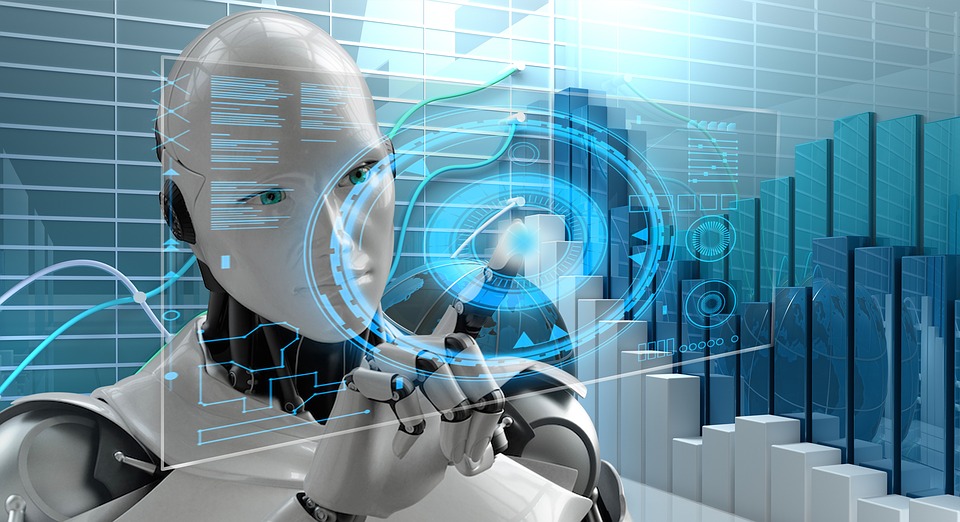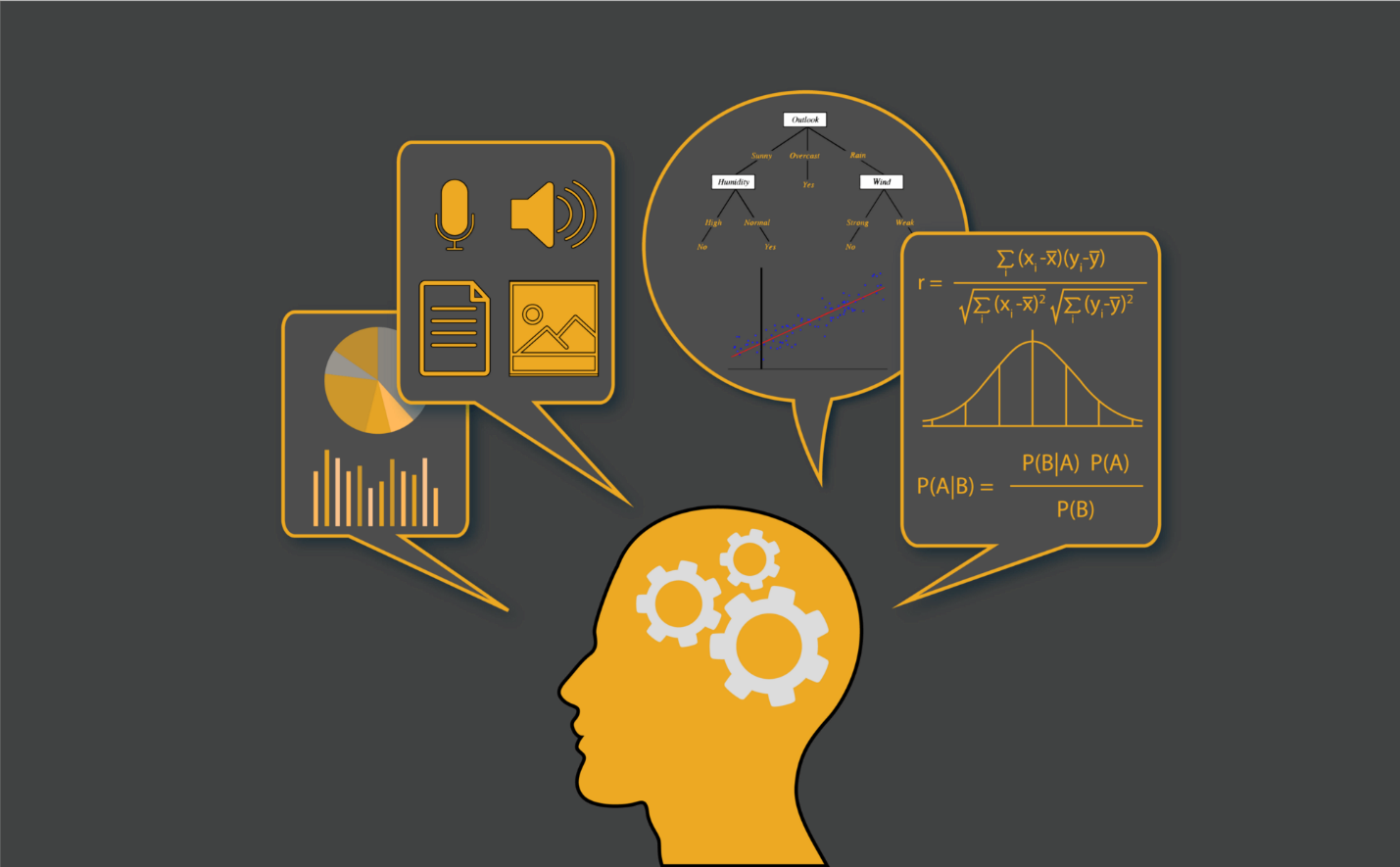5 min read
How websites have embraced the concept of Artificial Intelligence
Anurag : Apr 13, 2020 5:27:51 PM


Artificial intelligence, as its name implies, is the technology behind the artificial recreation of human intelligence by creating software that understands human repetitive habits.
The mathematical foundations behind AI are not exactly new. The large amount of digital data that is generated each day, the improvement of process, storage or bandwidth capabilities and the appearance of tools such as TensorFlow or Caffe have created the perfect context for their development. The main sectors that have embraced this technology are financial, insurance, health, manufacturing or aeronautics. These are the sectors in which the identification of patterns within large volumes of data can add value.
Artificial Intelligence, however, is not yet applied with great intensity in the field of software development. In the area of Quality Assurance Software’s Artificial Intelligence can help get specifications requirements or user stories of higher quality. Using "text mining" techniques it is possible to detect inconsistencies or deficiencies in the specifications, such as the absence of roles or consistent acceptance criteria in the definition of user stories. It is even possible to identify breaches of a hypothetical style guide. Similarly, using these same techniques together with classifiers, SQA professionals can automatically obtain categorization proposals for their collection of requirements.
If you have historical information on the tests performed on previous projects, neural networks can also help predict the duration and scope of test campaigns.
On the other hand, when historical information about the software code quality is available, Bayesian laws will be able to find correlations that may go unnoticed in the eyes of the SQA engineer. For example, it would be possible to determine which components of low complexity, but poorly documented, are the source of critical failures or are associated with a specific development team or with a specific dynamics of integration.
As you can see, although it has not yet reached its full potential, Artificial Intelligence can be of great help to the SQA engineer. Everything points to the fact that in the next few years the processes of development and testing will be addressed in a very different way to the current one, precisely thanks to the development of Artificial Intelligence.
It has been talking for years that digitization has destroyed jobs, but the reality is that it generates more work than it eliminates. Thus, the IA will open new product lines and, therefore, generate new business opportunities. Specializing and training in these areas seems like a fundamental task to maximize the possibilities of this trend.
In addition, we cannot forget the predictive capacity of this technology through machine learning mechanisms. Companies have in their hands the ability to anticipate changes in the market, sales patterns and, in particular, predict what the user will demand.
On the other hand, the implementation of the AI at the productive and organizational level through innovation will lead to an improvement in the process of internal digital transformation, a change that today is necessary and obligatory by all the organizations that operate in this new digital era.
In this line, after a remarkable acclimatization process, all this will lead to a significant increase in the company's competitiveness in general terms, derived from the reduction of operating costs and the increase in efficiency in the use of human capital.
In addition, the need to incorporate IA is not exclusive to large companies as it was until recently. Today we have accessible and scalable solutions that are democratizing their use.
At this point, it is crucial to look back and not fall back into the mistakes of the past, where several sectors and thousands of companies thought apart from technological revolutions, such as the one that has brought with it the development of the Internet? And they ended up suffering the consequences. No company, no matter what size, must operate outside of this premise: the AI has changed the rules of the game.
For all these reasons, organizations are facing a magnificent opportunity to make a leap forward in terms of competitiveness. And it is that the AI is the best ally of those companies that have embraced the customer centric vision for their business models. Afterwards, it would only be necessary to continue to develop constantly that vision of a company centered on the user, to implement an efficient system of data collection and to provide ourselves with a legal framework that provides legal security for the processing of information.
That said, while many industries in the world have adopted artificial intelligence (AI), eCommerce deserves special applause for using AI to help companies get closer to their customers and roll the red carpet for a much brighter future. So, what is unique about electronic commerce in the context of AI?
Better purchasing decisions
Electronic commerce in itself is a surprising revolution, where the natural human behavior of approaching a store - large or small - touching, feeling a product, making a well-informed purchasing decision, and acquiring a product was put on its head. Overnight, we were expected to look at a screen (either on a Smartphone or a computer) and make purchasing decisions based on images and descriptions. But the mere convenience of taking things home and in time made electronic commerce a super hit industry. But that was not all. Nowadays, eCommerce is redefining business by unlocking AI and testing AI in unimaginable proportions. Let's understand this with some examples.
Chatbots
Recently Titan launched a chatbot on its website, which helped its predominantly millennial client group choose glasses, bags and watches based on robotic intelligence. The bot, which depends on the three main spokespersons of any merchandise business - product discovery, customer service and referrals - increased the number of people visiting the website in a matter of days. Today, many eCommerce websites are taking advantage of concepts such as predictive intelligence and contextual messaging simply to please the customer.
Even the most "serious" segments of the industry are following eCommerce guys to ensure customer satisfaction. An example of this is 'Ask Eva' by HDFC Bank. Bank account holders will be familiar with Eva, who appears (literally) on your screen to help you with anything from service requests to IFSC codes to loan offers, making the bank's website a shopping center. Of course, investments in Chatbots are much more than a delight for the customer.
The treasure of data on customer behavior and the usage patterns acquired by eCommerce platforms thanks to the AI and self-learning algorithms creates personalized shopping experiences for online buyers, as well as giving an in-depth visibility on trends. According to Gartner, customers will manage 85% of their relationship with the company without interacting with a human being, by the year 2020.
AI and Robotics in electronic commerce
Let's not forget how AI and robotics are driving greater efficiency behind the scenes. A new artificial intelligence company based in Bangalore called iFuture Robotics, which has partnered with hyperlocal shopping websites such as Big Basket to improve its warehouse operations. Robots are smart enough to read RFID tags, and since each customer's order cart is associated with a unique ID, robots can tell when a full car is ready for shipment, saving several precious minutes of productivity.
This is just one of the many examples of how AI, driven by new technologies such as machine learning, virtual reality, robotics, etc., is reshaping the eCommerce experience for users and the industry for their business. Imagine a scenario in which a 32-year-old man is buying a perfume for his female partner.
While this person can buy men's clothing online, the purchase of perfumes is a deviation from their expected behavior. In short, the AI will be able to understand this difference and obtain two sets of data, one on the past behavior and the other on the exception, and possibly predict when the next deviation will occur.
In the future, one can reasonably predict that more and more AI will be used to create multi-layered data about each customer, based on their past and present purchasing behavior, and an almost accurate prediction of future behavior. Of course, it does not take a bot to understand that the human brain is one of the most complex things on earth, and if there is a technician who can even 'think' to understand it, it is an AI!
Need help with an AI solution for your organization? Get in touch
Contact us

How life has changed with Machine Learning
Machine learning and artificial intelligence are the sailors of the new technology-driven business world, in spite of being the fact that word...



